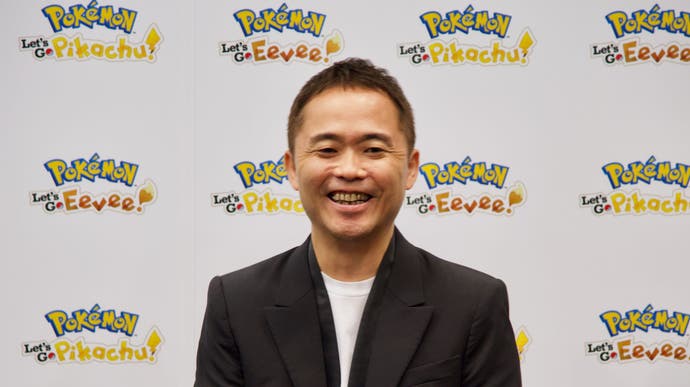Pokémon boss Junichi Masuda on keeping hardcore players happy, borrowing from Pokémon Go, and Let's Go's story
"I'm always concerned that we take Pokémon too far, that it's no longer approachable."
Pick out a feature from most Pokémon games and, chances are, Junichi Masuda probably had something to do with it. The long-time director, producer, designer and composer has done everything from designing the intricacies of breeding shiny Pokémon in the main series, to writing the music for Pokémon Go.
On Wednesday, Eurogamer was present at a brief Q and A with Masuda-san and other members of the European press, shortly after the whirlwind conference in which the Pokémon Company revealed its plan for not one, but three games, at various stages of development, to arrive over the next year and a half.
The curious mobile-Switch hybrid Pokémon Quest, as well as the upcoming, sort-of spinoff Pokémon: Let's Go Pikachu and Eevee, and the mysterious untitled Pokémon RPG that's due in late 2019 are all being developed, simultaneously, by Game Freak; its first mobile game, first HD home console game (and first with co-op, and cross-play of a sort), and then its first full RPG on the Switch. The studio, I'm told, has grown to well over three hundred people in size - it's an ambitious plan even still. Read on for a full transcript of Masuda-san's chat with us and the European media.
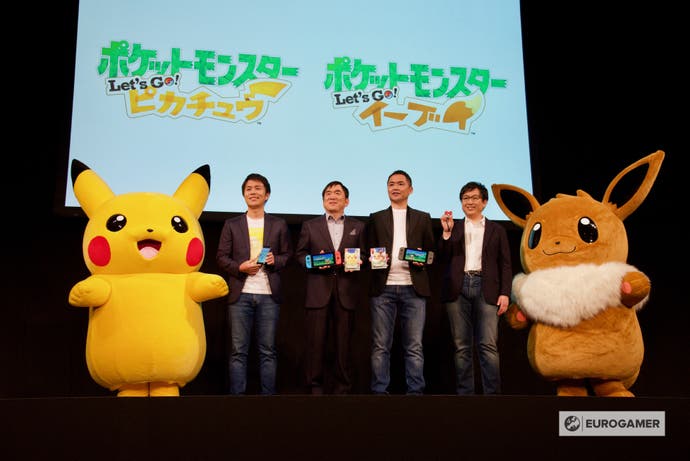
Can you elaborate on the smartphone and switch connectivity?
Masuda: So in terms of how the connection works, we wanted to make it as simple as possible, so on the Switch there's a connect button, you press the button on it, and then in Pokémon Go on your smartphone you press the connect button. So it's a very simple Bluetooth connection.
In terms of what you can do with the connection, right now you can send Pokémon from Pokémon Go to Let's Go Pikachu and Eevee - and they don't go straight into your collection or your party, they enter into an area that's kind of like a Safari park type thing where you can see the Pokémon moving around in there, and you can actually go there and interact with them and catch them. But there are also some incentives to move a lot of the same Pokémon from Go - the same species - and there are some sort of mini games you can play if you do that.
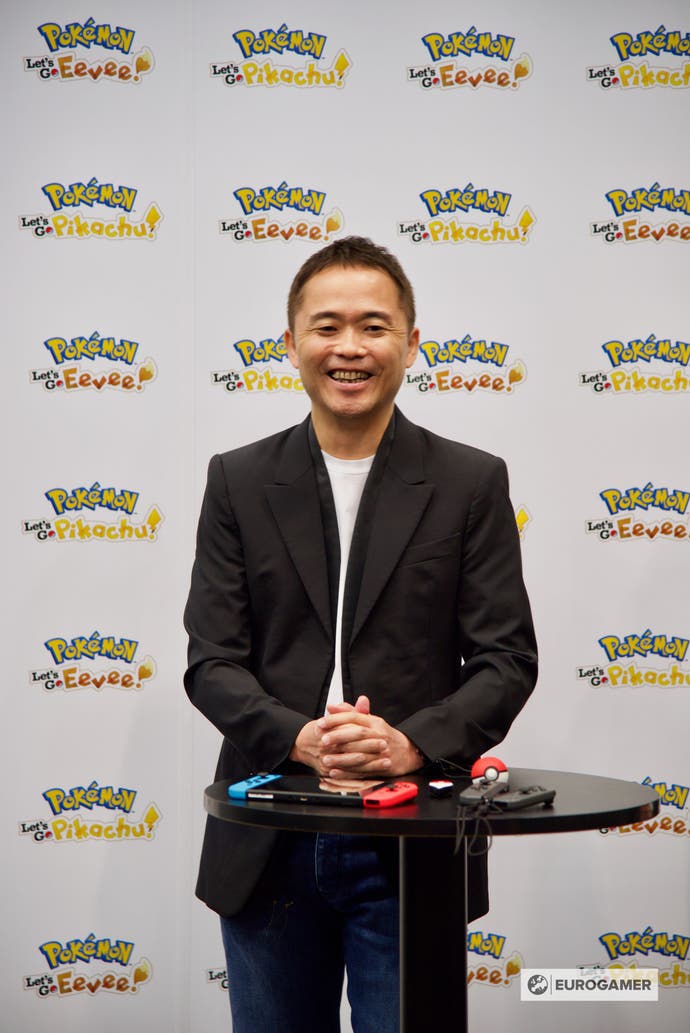
Do Pokémon Let's Go Pikachu/Eevee work like the main series, with exclusive Pokémon to each game? And will there be trading between the two?
Masuda: Similarly to the main series Pokémon games up until now, we've created two versions, Pikachu and Eevee, to have different Pokémon appear in both games, to really facilitate trading and make people want to trade with each other. So, there is that wireless trading and that kind of gameplay around trading with each other so you can complete your Pokédex.
How does this fit into the series, when it seems like such a clean break? Are there any references at all in Let's Go to other games that have come out? Do any old characters return?
Unfortunately all I can say is that they're based on the Pokémon Yellow version, and more details besides that are... something that I hope people will look forward to.
Can we learn more about the assessment you made about Pokémon Go and its success, and are there other things you've picked up from Pokémon Go to include in Let's Go?
Masuda: So in terms of first about how I assess the success of Pokémon Go, of course it makes me very happy to see Pokémon Go be such a huge success and such a phenomenon - and really we think it introduced a lot of people to Pokémon, the idea of catching Pokémon, the idea of a Pokéball. And because of that we really wanted to expand on that kind of idea of what a Pokémon RPG could be, something that's broader, for everyone, and that's why we work on these games. So that's one assessment on Pokémon Go.
With that in mind obviously there are so many people that played Pokémon Go - I think we reached 800 million downloads - so we wanted to create a fun experience for them but at the same time really make a fun game for fans that have enjoyed the RPGs up until now, so it's really kind of merging those two audiences into one game that we all can have fun and play.
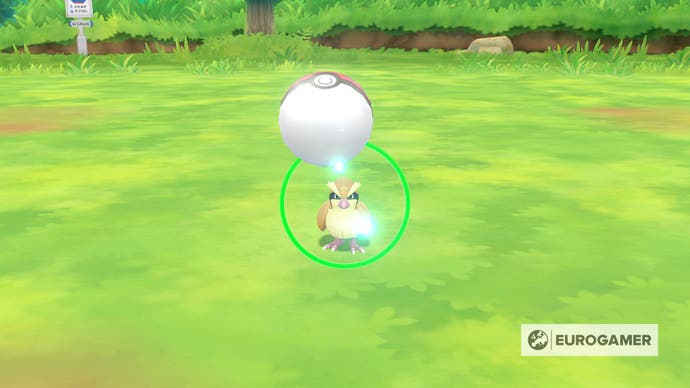
I'm trying to think of other things we picked up from Pokémon Go... I can't say about any other gameplay ideas that we picked up from Pokémon Go, but one of the things we really focused on was that experience of allowing for, for example, parents to kind of go out and catch Pokémon for Pokémon Go and then give some of those to maybe their kid, who's playing Let's Go Pikachu on Switch for example. So that experience is one of the things we wanted to really take a lot of care over for these games.
And there's probably a lot of things, I guess more subconsciously, that did come into the development of these games - of course I worked on Pokémon Go, for example I created the music for both of them [Go and Let's Go] so, there's probably some things that maybe I'm not thinking about that did affect the Switch games.
How do you think the core RPG players will react to the Let's Go games? I know Pokémon Go was immensely popular but it had quite a mixed reaction amongst more 'hardcore' players - how do you appease those players and is it more a case that they should wait to 2019 for the game they're after?
Masuda: So the first thing I can say is that... I've been the director on the main series Pokémon RPGs - most of them, up until now - and there are a lot of kind of core tenets or rules of the series that I've never broke up until now, for example the whole idea of the flow of going into a battle against wild Pokémon, reducing their health and then catching them. That was one of the things that we just never wanted to change but, with these games specifically, I wanted to create a new experience for kids and with this time I decided to shift that towards more of a kind of casual, lighter experience. So that's one of the things I wanted to do.
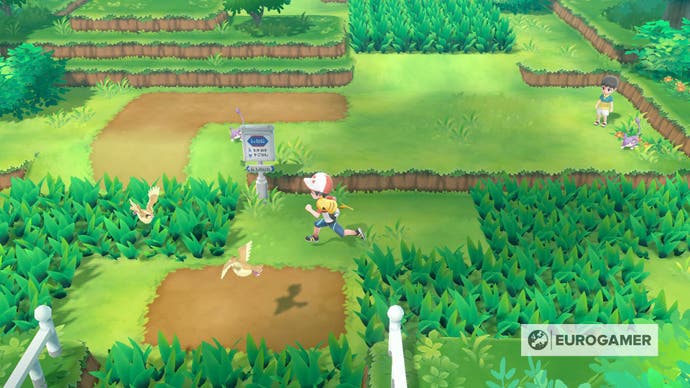
And one of the things, for example, up until now in the tall grass you couldn't see which Pokémon were in there so, a lot of players would kind of avoid the tall grass in their journeys, up until now, and one of the big changes this time is that you can actually see the Pokémon before you actually run into and encounter them so, it's kind of changed the dynamic to much more of a proactive experience, where you're going out and seeking Pokémon.
So for me, having worked on the Pokémon main series games, and Pokémon Go, both the players who have enjoyed our RPGs until now, all the fans are extremely important to me - but also the people who played Pokémon Go, and that was their first Pokémon game, they're also extremely important to me, and what I really want to do with these games is prevent both of these types of players from going in different directions, and I'm hoping that these games will kind of bring them together.
So what would make me happiest would be if Pokémon Go players and traditional Pokémon RPG players actually come together and are throwing out Pokéballs together, either with the Joy-Con or using their smartphones, and really enjoying Pokémon together.
And that's also one of the things I just mentioned about the parent maybe going out and catching Pokémon and giving them to their children, and sharing that catching experience.
Just to quickly follow up on that, I know you can't talk too much about the 2019 RPG but can you tell me when the decision was first made to develop that game as well as the Let's Go games? Did you decide to do LG first and then the 2019 game? And was that decision made to mitigate the risk of the more hardcore, long-term players maybe not being so into it?
Masuda: So it definitely wasn't like a risk-avoiding thing. We knew that we wanted to create another Pokémon "series", as we call them, for all the fans that have really enjoyed the games until now. But the games that we're talking about for 2019 we've been working on those for a while, the same with Let's Go Pikachu and Let's Go Eevee - part of it is because there's a lot of functionality with the Nintendo Switch and we really want players to really experience what there is to offer here so, we're making two different games at the same time.
And specifically for these games, me personally I really want more kids to pick up and play with the Nintendo Switch, that's really the goal for me.
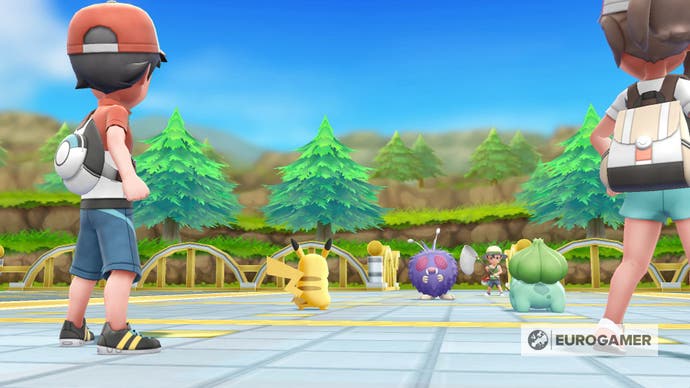
Related to that, looking forward, do you envisage there being two series of Pokémon games, say a Let's Go series and a main series like Sun and Moon - are there going to be two or are they going to come together again?
Masuda: So I'd say there's a possibility of that, should the games sell really well and obviously a lot of people play them, but right now we're really focusing on the development, and just getting a lot of people to play the games in the first place!
You said earlier there were a few things that never changed in Pokémon Go but have changed in Let's Go - with Nintendo choosing to make others like Mario and Zelda more of an open world, for the next Pokémon did you want to experiment with more of an open world, with exploration and roaming?
Masuda: So with the Pokémon games I'm sure you all know we're always trying to make them fun appealing for players of all ages, not just to older players and not just to kids. So, I can't really commit either way but, if we find a way - I think it's possible - if we were to find a way to preserve the fun and kind of broad appeal of Pokémon, and also have that kind of more open gameplay, then that is one possibility. It's hard to say right now.
So that's definitely, those type of questions, I always - I wouldn't say worried - but in some way I'm always concerned that we go and take it too far, so it's no longer approachable? I used to be a fan of top-down shooting games, like R-Type [points to a nearby arcade machine], and as time went on that shooting genre just kept pursuing that sort of more difficult, more complicated direction and it just got to the point where people couldn't enjoy them as much and they just weren't as approachable as they used to be. So I just want to make sure that, at Pokémon, we don't make that same kind of - I don't want to say mistake but, go down that same direction.
You said that the game is inspired by Pokémon Yellow from 1999? Can we find the same story as it was then?
Masuda: So one thing I can say is that the game world, the overworld, the whole map, is very true to the original Pokémon Yellow games. And also the story kind of sticks to the story beats from Pokémon Yellow.
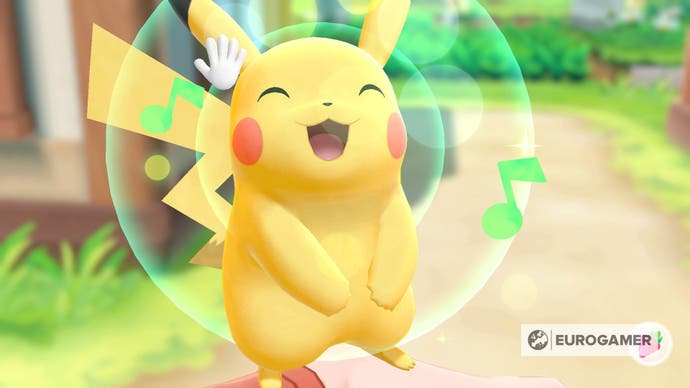
One of the kind of reasons behind that was, with the games being released 20 years ago, I kind of imagined that maybe some parents who played Yellow version when they were kids, will now have kids of their own and they can kind of remember that adventure and maybe give some hints or tips to their kids that are playing the game.
Maybe some other fun things, for example the first Gym Leader, Brock - a lot of kids who maybe grew up with the animated series and not the original Red and Blue series, they may not even know he was a gym leader, so there might be some fun discoveries there.
We know the Poké Ball Plus vibrates and makes sounds - can you elaborate on that some more?
Masuda: I can only say there's some fun things, if you do put a Pokémon in the ball and walk around with it, without saying details, but one cool thing if you put your partner Pokémon - so maybe your Pikachu - inside of it, I think maybe there's some extra things that makes it feel as though the Pokémon is really inside the ball. But I can't give any details.
So it was actually in the video for example if you shake it, it'll actually sounds like it's in there, so things like that - and also some things we haven't revealed, that are cool that affect the gameplay if you walk around with it.
